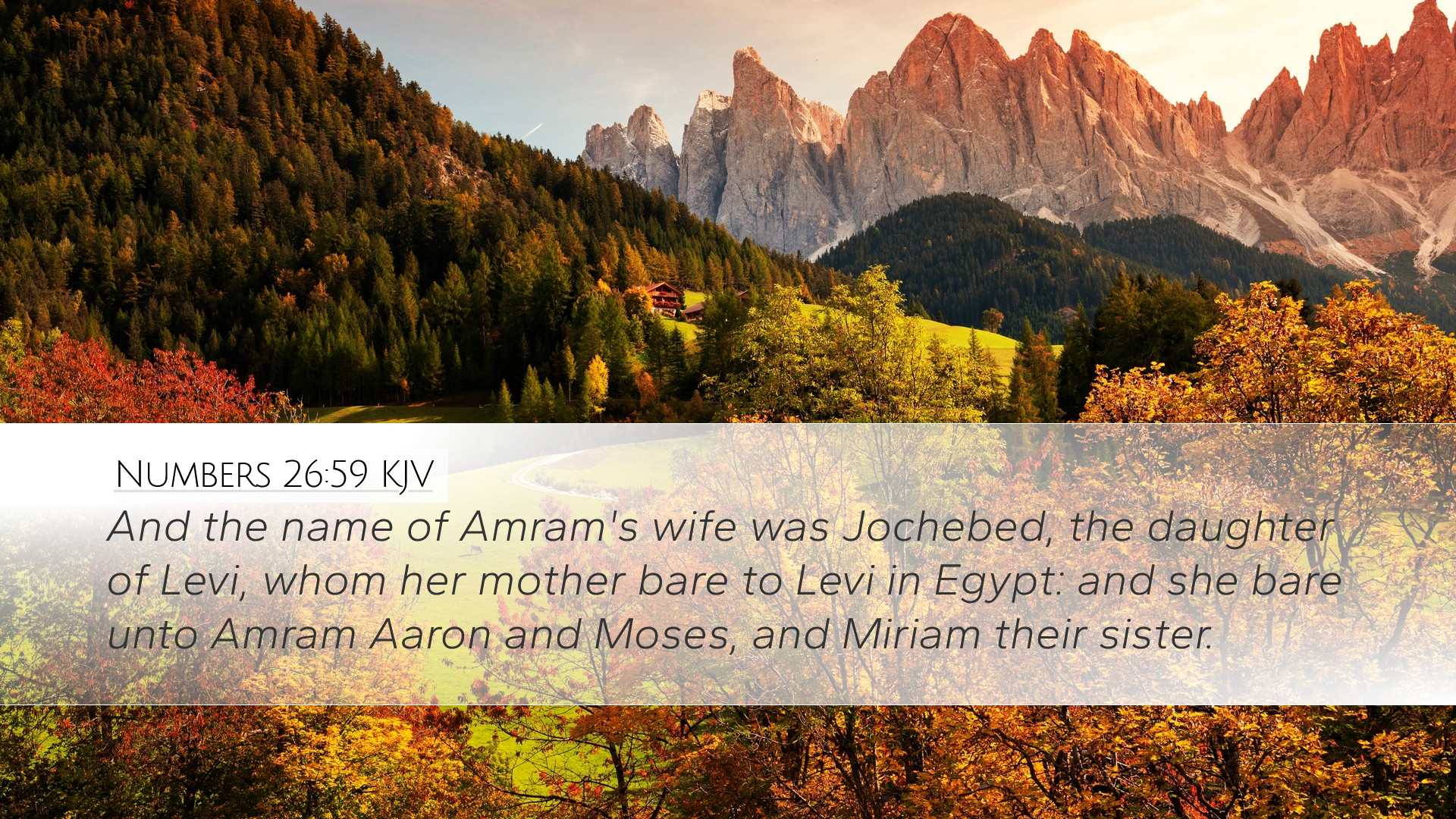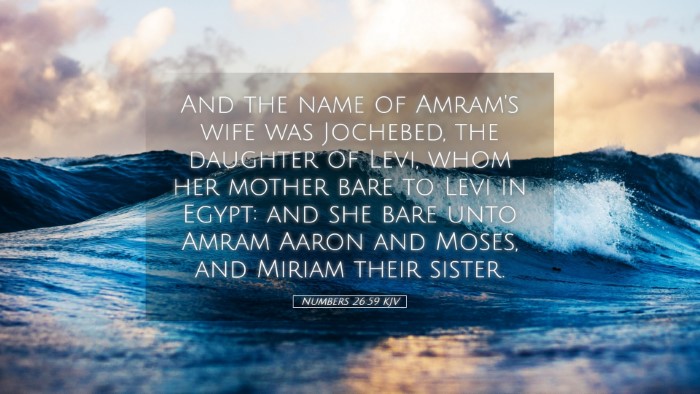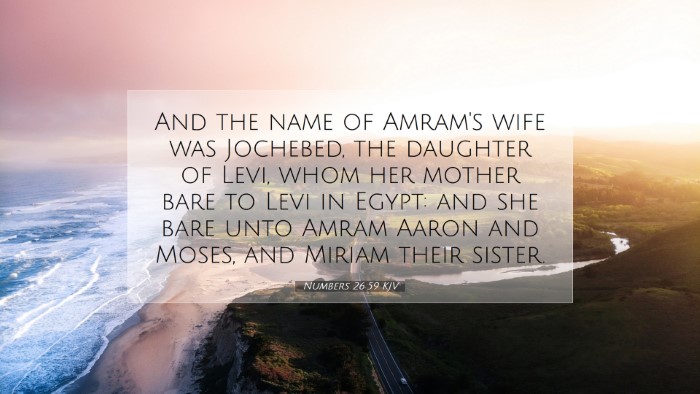Bible Commentary on Numbers 26:59
Verse: "And the name of Amram's wife was Jochebed, the daughter of Levi, whom she bare unto Amram: Aaron and Moses, and Miriam their sister."
Introduction
In Numbers 26:59, we are presented with a brief genealogical record which carries significant implications for understanding the context of the Israelite leadership. The mention of key figures such as Amram, Jochebed, Aaron, Moses, and Miriam shows the importance of lineage in the Israelites' identity and their covenant relationship with God. This commentary seeks to explore the theological and historical significance of this verse by synthesizing insights from several public domain commentaries.
Historical Context
The book of Numbers primarily deals with the Israelites' journey through the wilderness following their exodus from Egypt. Chapter 26 focuses on the census that was conducted to assess the population of the tribes of Israel as they prepared to enter the Promised Land. Within this context, genealogies serve not only to organize the community but also to underscore God's faithfulness across generations.
Amram and Jochebed
Amram, as mentioned in this verse, is a pivotal figure in Israel's history. He is identified as a descendant of Levi, a tribe set apart for priestly duties. His wife Jochebed, also from the tribe of Levi, further emphasizes the line of holiness and service that would characterize their offspring. The union of these two figures produces three significant leaders in the Israelite community: Aaron, the first high priest; Moses, the lawgiver; and Miriam, a prophetess and leader among women.
Theological Implications
This verse reveals several theological themes that are vital for pastors, theologians, and scholars:
- The Sovereignty of God: The very fact that the genealogy is preserved in the scriptures underscores the sovereignty of God over the history of His people. He chooses specific individuals for His purposes, demonstrating that He works through families to accomplish His will.
- Importance of Lineage: In ancient Israel, lineage was crucial for understanding one’s place within the community and covenant. This verse serves as a reminder that God's promise to Israel was not merely about individuals but also about the families and tribes that would carry that promise forward.
- Role of Women: Jochebed’s inclusion in this lineage highlights the often-overlooked role of women in biblical narratives. Though her role may not be as prominent as her sons', her significant influence in the nurturing and faith formation of these leaders cannot be discounted.
- Preparation for Leadership: The verse illustrates how God prepares leaders for significant roles within His redemptive plan. The qualities reflected in Moses, Aaron, and Miriam often trace back to the character and faith of their parents.
Commentary by Notable Scholars
Matthew Henry
Matthew Henry emphasizes the importance of family heritage in his commentary, noting that God’s appointment of leaders often stems from godly progenitors. He points out that Amram and Jochebed were notable in their faithfulness and obedience to God, which is vital for the formation of their children’s leadership skills. Henry asserts that understanding the genealogy centralizes the importance of looking back at God’s workings in history, reminding the faithful that leadership comes with a legacy of faith.
Albert Barnes
Albert Barnes brings attention to the spiritual significance of the names presented in this verse. He reflects on the meanings and roles of Moses, Aaron, and Miriam as representatives of different aspects of Israel's spiritual life—the law, the priesthood, and prophetic ministry respectively. Barnes highlights the completeness in this family’s contribution to the nation’s identity and worship, indicating how diverse leadership arises from a singular source of godliness and commitment to Yahweh.
Adam Clarke
Adam Clarke focuses on Jochebed's role as a mother in a terrifying cultural context, emphasizing that amid oppression in Egypt, she bore and raised potential leaders against a backdrop of systemic evil. Clarke points out how the name ‘Jochebed’ (meaning 'Yahweh is glory') signifies her faith and hope amid adversity. He contends that their family serves as a testament to God’s providence and how faith can flourish even in challenging circumstances.
Conclusion
Numbers 26:59 provides not only a genealogical listing but a rich tapestry of theological implications that speak to the nature of God’s interaction with humanity. The legacy of Amram and Jochebed, encapsulated in their children, allows us to reflect on our own spiritual heritage and the importance of nurturing faith within families. For those in leadership, there is a call to consider the faith of the generations that have come before, recognizing that God’s Spirit works through families and communities to fulfill His promises.
This verse, therefore, serves as an encouraging reminder that each individual has a role in God's overarching narrative, and through faithfulness, we may leave a legacy that honors God and points others toward His redemptive work in the world.


